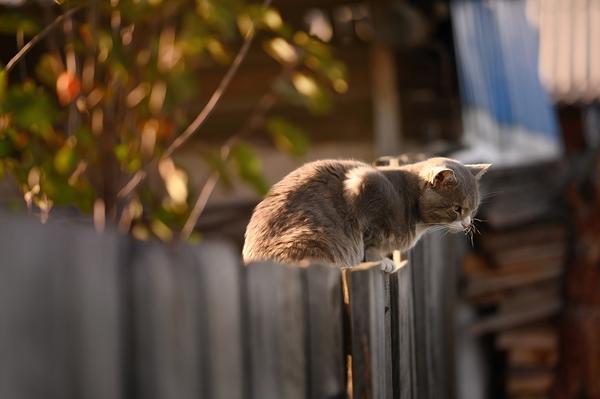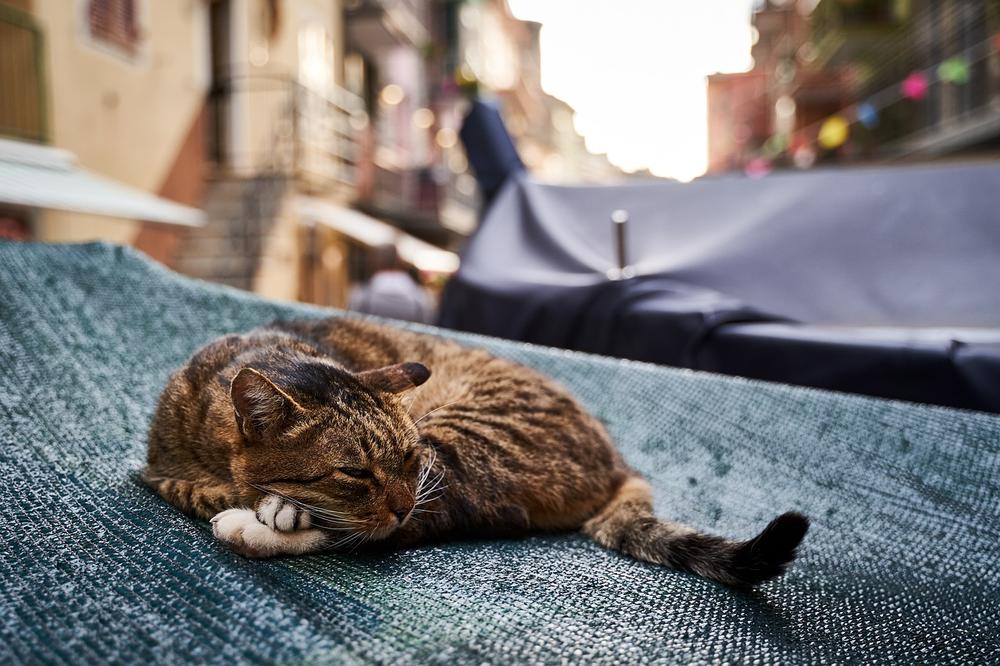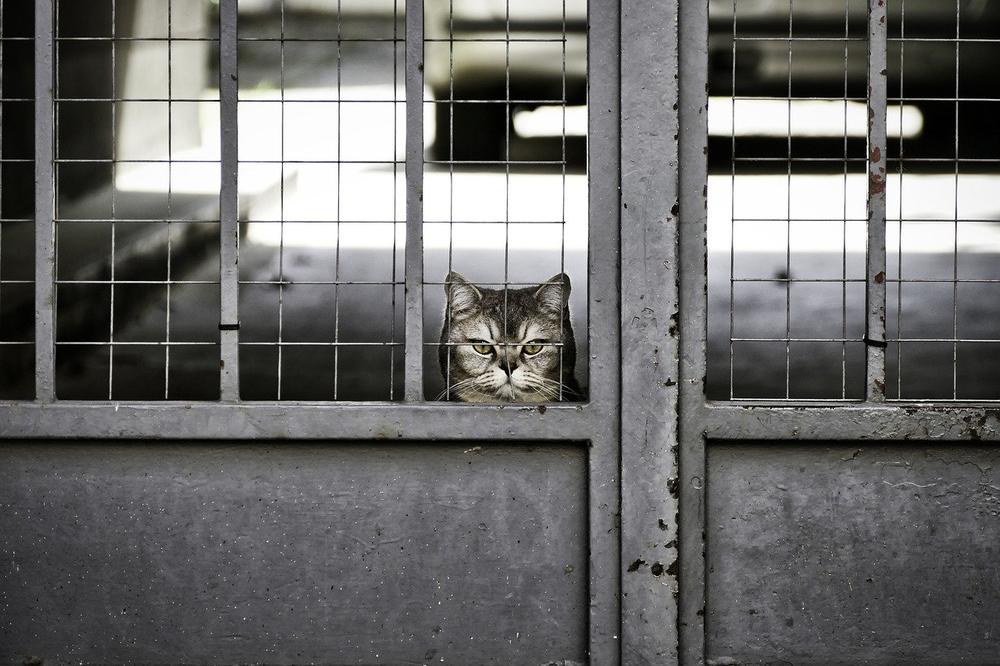Do Cats Need Access to the Litter Box at Night?

Are you worried sick about your furry little friend's comfort and health, especially during the night?
Do you lie awake, staring at the ceiling, wondering if your cat desperately needs access to a litter box while you sleep? 😔
I get it.
You can't bear the thought of your precious companion suffering in the wee hours.
Well, fear not, my concerned cat lover, because today we embark on a journey to uncover the truth.
Let's find out if having a litter box within reach is a must.
Do Cats Require Litter Box Access During Nighttime?
Here's why:
- Without their litter box, cats get anxious and stressed, which can lead to behavior problems.
- If there's no litter box, your cat will likely do their business elsewhere, creating a big mess for you.
- Cats are most active at night, so it's important they have a litter box available whenever they need it.
- By giving them nighttime access to their litter box, you're ensuring their comfort and happiness.
- With a litter box nearby, accidents and discomfort for your cat are less likely to happen.
- Cats thrive on routine and familiarity, so having the litter box easily accessible at night is essential.
- If you restrict their access to the litter box, they'll find other places in your home to go, causing even more mess.
- If you don't provide them with a litter box day and night, be prepared to find cat waste on your furniture or carpet.
- Keeping the litter box available all the time promotes cleanliness for both you and your furry friend.
- Making the litter box accessible at night helps maintain a harmonious relationship between you and your cat.
So, for the well-being of your cat and to avoid any unpleasant surprises, make sure they can use their litter box throughout the night.

It's a win-win situation for both of you. 😺
Main points I'll expand upon further down this article:
- Cats have better night vision, but it's not ideal to have the litter box in the same room as where they sleep.
- Confining a cat to one room can increase their frustration and stress.
- If bringing the cat upstairs to sleep, ensure a nearby litter box.
- Moving a litter box should be done gradually or by showing the cat the new location.
- Cats prefer routine, so sudden changes can cause confusion.
- The frequency of a cat using the litter box is influenced by age and health.
- It is recommended to have multiple litter boxes for freshness and convenience.
- Cleanliness is crucial to encourage cats to use the litter box.
- Consider nighttime accessibility for elderly cats.
- Placing litter boxes in quiet, low-traffic areas and adding night lights can help.
Can Cats Sleep in Same Room as Litter Box?
It's not ideal to have the litter box in the same room where cats sleep.
Limited space can make things tricky.
You want to keep the bed away from any potential odors or sounds from the litter box. Cats see better at night than humans, but confining them to just one room with the litter box can stress them out.
If your cat sleeps upstairs, you need to have a litter box nearby to avoid disturbances during the night.

So, here are some options for you to consider:
- Put the litter box in a separate room: This gives your cat privacy while doing their business, and keeps you away from any smells or noises.
- Use an enclosure or cover for the litter box: These can help control odors and make having the litter box in your sleeping area look nicer.
- Clean the litter box regularly: If you keep it clean and odor-free, you won't be bothered while you sleep.
Every cat is different, so you might have to try different solutions to find what works best for both of you.
Now, you might be wondering...
What's the best way to transition your cat's litter box to a new location?
Well, let me tell you, the key is to do it gradually and provide clear guidance.
But here's the thing, there's also a quick approach if you're up for it.
So, let's dive into the details and discover the best method for keeping your cat comfortable during this transition...
Can Cats Find Their Litter Box if You Move It?
Are you thinking about moving your cat's litter box?
No worries, I've got all the information you need.
Let me tell you something important - cats are creatures of habit and sudden changes don't go down well with them.
So, if you're planning on switching up their litter box location, take it slow and steady.
Don't rush it. Gradually move the litter box just a little bit each day until it finally reaches its new spot.
Why is this gradual adjustment so crucial, you ask?
It's because it helps minimize confusion and keeps your kitty calm.
And hey, guess what?
You can provide clear guidance to the new location too!

Make it crystal clear where the box is going next.
Cats may be independent, but they still need our help with good directions.
Show your furry friend exactly where the box is moving to.
If you prefer a more straightforward approach (which I know you do), try showing your cat the new spot once and let them figure it out themselves.
Believe it or not, they're pretty smart when it comes to these things!
Ultimately, the goal here is to ensure your cat feels comfortable and stress-free throughout this transition.
Give them enough time to adjust, offer some encouragement, and as always, keep being your awesome self.
And speaking of taking care of your cat, I wanted to share an essential resource with you.
When it comes to storing cat litter, whether it's used or unused, I've written a comprehensive guide that you might find helpful.
Head over to my article on How to Store Cat Litter to discover the best ways to keep your cat's litter fresh and accessible.
Don't miss out on the valuable insights and tips I've gathered just for you!
The Nocturnal Habits of My Cat's Litter Box Usage
Cats prefer to use the litter box at night. The quiet and calm atmosphere during those hours makes them feel less exposed.
The frequency of a cat using the litter box is influenced by their age and health. Cats instinctively know how to use a litter box, but their usage varies based on age and physical condition.
Adult cats should poop once every 24 hours and pee 1-2 times within that same timeframe. If your cat only uses the litter box at night, it might be anxious or struggling with adapting to a new environment.
Optimal Litter Box Placement for Freshness and Nighttime Use

When it comes to litter box placement, there are some important things to consider.
- Prioritize cleanliness: Placing paper towels or pads around the tray can help absorb spills and maintain freshness, especially at night when accidents might go unnoticed until morning.
- Multiple litter boxes: It's recommended to have at least one litter box per cat, plus an extra box, to ensure cleanliness overnight. Cats prefer clean options, so providing additional boxes for nighttime use is necessary.
- Remove litter from food/water dishes: Prevent contamination by keeping litter away from these areas.
- Daily cleaning: Scoop waste and add fresh litter every day to keep the box clean and odor-free.
- Convenient placement: Have a litter box on each floor of your home for easy access.
- Consider elderly cats: Use night lighting to guide them to the litter box during nighttime hours.
- Quiet location: Position the box in a quiet, low-traffic area away from noise.
- Cleanliness during active hours: Cats are more active during dawn and dusk, so make sure the litter box remains clean overnight.
- Minimize tripping hazards: Avoid placing the litter box near the bed to reduce the risk of accidents.
- Contain litter dust: Use a covered litter box or disguise it with furniture to minimize litter dust. A nightlight nearby can also help reduce falling risks.
By adhering to these suggestions, you can maintain ideal positioning of the litter box to keep it fresh and suitable for nighttime usage.
And that wraps up today's article.
You made it to the end of my blog post! I was wondering, did you enjoy reading it? I put a ton of effort into creating informative and detailed posts. It does take quite a bit of time (in a positive way), so I would be really grateful if you could click on any of the social sharing icons to share this post with others. Thank you so much!
Talk soon,
-Sarah Davis